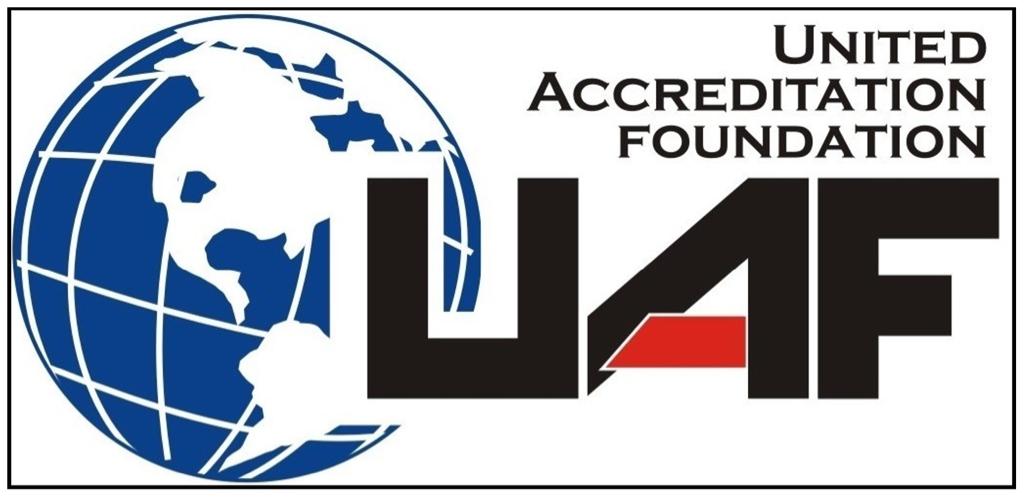Welcome to Hawk Eye, your trusted destination for ISO 14001 certification in India. At Hawk Eye, we understand the importance of maintaining a sustainable business model and ensuring that your organization meets international environmental standards. That's why we are dedicated to providing comprehensive ISO 14001 certification services that help you make a positive impact on the environment while boosting your credibility in the market.
Our team of experts has in-depth knowledge of environmental management systems and the ISO 14001 standard. We work closely with you to develop a customized approach that aligns with your unique business requirements. From conducting audits and risk assessments to implementing effective environmental policies, our services cover every aspect of the certification process. Our goal is to help you streamline your operations, minimize waste, and improve your environmental performance.
With Hawk Eye, you can confidently demonstrate your commitment to environmental responsibility and gain a competitive edge in the Indian market. Contact us today to learn more about our ISO 14001 certification services and how we can support your sustainability journey.
Benefits of ISO 14001 certification
ISO 14001 certification offers numerous benefits for businesses in India. Firstly, it helps organizations establish a robust environmental management system that not only reduces their environmental impact but also improves overall efficiency. By implementing sustainable practices, businesses can minimize waste, reduce energy consumption, and optimize resource utilization. This, in turn, leads to cost savings and improved profitability.
Secondly, ISO 14001 certification enhances the reputation and credibility of businesses. With growing awareness about environmental issues, customers and stakeholders are increasingly concerned about the environmental impact of organizations. By obtaining ISO 14001 certification, businesses can demonstrate their commitment to environmental responsibility and gain trust from customers, suppliers, and investors.
Thirdly, ISO 14001 certification provides a competitive advantage in the market. Many government agencies and public sector organizations require their suppliers to hold ISO 14001 certification. By obtaining this certification, businesses can access new markets and expand their customer base. Additionally, ISO 14001 certification is often seen as a prerequisite for participating in tenders and winning contracts, giving certified businesses a distinct advantage over their competitors.
In summary, ISO 14001 certification offers benefits ranging from improved efficiency and cost savings to enhanced reputation and market competitiveness. It provides a framework for businesses to proactively manage their environmental impact while meeting customer and regulatory requirements.
ISO 14001 certification process in India
The ISO 14001 certification process in India involves several key steps. The first step is to perform a gap analysis to assess the organization's current environmental management practices and identify areas that need improvement. This analysis helps determine the organization's readiness for ISO 14001 certification and provides a baseline for developing an implementation plan.
Once the gap analysis is complete, the next step is to develop and implement an environmental management system (EMS) that aligns with the requirements of ISO 14001. This includes establishing environmental objectives, defining processes, documenting procedures, and ensuring the availability of resources to support the EMS. It also involves training employees on environmental awareness and responsibilities.
After implementing the EMS, the organization needs to conduct internal audits to verify its compliance with ISO 14001 requirements. Internal audits help identify any non-conformities or areas that need improvement before the certification audit. It is essential to address these findings and make necessary adjustments to ensure full compliance.
The final step in the ISO 14001 certification process is the certification audit conducted by an accredited certification body. The audit evaluates the organization's EMS against the ISO 14001 standard. The certification body assesses the effectiveness of the EMS, reviews documentation, conducts interviews, and verifies compliance through site visits. If the organization meets all the requirements, it is awarded ISO 14001 certification.
It is important to note that ISO 14001 certification is not a one-time achievement. To maintain certification, organizations need to undergo regular surveillance audits to ensure ongoing compliance with the standard's requirements. These audits help identify opportunities for improvement and provide assurance to stakeholders that the organization is committed to continuous environmental performance.
Importance of ISO 14001 certification for businesses in India
ISO 14001 certification holds significant importance for businesses in India, considering the country's environmental challenges and the increasing focus on sustainability. India faces various environmental issues, including air and water pollution, waste management, deforestation, and climate change. Organizations that operate in India can play a crucial role in addressing these challenges by achieving ISO 14001 certification.
ISO 14001 certification helps businesses adopt a proactive approach towards environmental management. It provides a systematic framework for identifying and mitigating environmental risks, reducing pollution, and improving resource efficiency. By implementing sustainable practices, businesses can minimize their environmental footprint and contribute to a cleaner and healthier environment for future generations.
In addition to environmental benefits, ISO 14001 certification also has economic advantages for businesses in India. With the growing global demand for environmentally responsible products and services, certified businesses have a competitive edge in the market. ISO 14001 certification enhances the reputation and credibility of organizations, attracting customers who prioritize sustainability. It also opens doors to new business opportunities, such as partnerships with environmentally conscious suppliers and access to government contracts.
Furthermore, ISO 14001 certification can help businesses comply with environmental regulations and legal requirements in India. By implementing the ISO 14001 standard, organizations can ensure they are in alignment with applicable environmental laws, reducing the risk of non-compliance and associated penalties. This not only protects the organization from legal liabilities but also fosters a positive relationship with regulatory authorities.
Overall, ISO 14001 certification is crucial for businesses in India as it enables them to address environmental challenges, gain a competitive advantage, and comply with legal requirements. It demonstrates a commitment to sustainable practices and positions organizations as responsible corporate citizens.
Steps to achieve ISO 14001 certification
Achieving ISO 14001 certification involves several key steps that organizations in India need to follow. These steps ensure a systematic approach to environmental management and help organizations meet the requirements of the ISO 14001 standard. The following are the typical steps involved in the certification process:
- Initial Assessment: Conduct a gap analysis to assess the organization's current environmental management practices and identify areas that need improvement. This analysis helps determine the organization's readiness for ISO 14001 certification.
- Environmental Management System (EMS) Development: Develop and implement an EMS that aligns with the requirements of ISO 14001. This includes establishing environmental objectives, defining processes, documenting procedures, and ensuring the availability of resources to support the EMS.
- Training and Awareness: Train employees on environmental awareness and their responsibilities within the EMS. This ensures that everyone in the organization understands their role in achieving environmental objectives and complying with the EMS.
- Internal Audits: Conduct internal audits to verify the organization's compliance with ISO 14001 requirements. Internal audits help identify any non-conformities or areas that need improvement before the certification audit.
- Management Review: Conduct periodic management reviews to evaluate the effectiveness of the EMS and identify opportunities for improvement. This review involves analyzing environmental performance data, reviewing objectives, and ensuring that the EMS remains aligned with the organization's strategic goals.
- Certification Audit: Engage an accredited certification body to conduct the certification audit. The audit evaluates the organization's EMS against the ISO 14001 standard. The certification body assesses the effectiveness of the EMS, reviews documentation, conducts interviews, and verifies compliance through site visits.
- Maintaining Certification: To maintain certification, organizations need to undergo regular surveillance audits by the certification body. These audits ensure ongoing compliance with the ISO 14001 standard and provide assurance to stakeholders that the organization is committed to continuous environmental performance.
By following these steps, organizations can successfully achieve ISO 14001 certification and establish a robust environmental management system that aligns with international standards.
ISO 14001 certification requirements
ISO 14001 certification requires organizations to meet specific requirements outlined in the ISO 14001 standard. These requirements form the basis for developing and implementing an effective environmental management system (EMS). The following are the key requirements of ISO 14001:
- Environmental Policy: Establish an environmental policy that outlines the organization's commitment to environmental performance improvement, pollution prevention, and compliance with applicable legal and other requirements.
- Planning: Develop environmental objectives and targets based on the organization's significant environmental aspects. Establish a plan to achieve these objectives and identify the necessary resources and responsibilities.
- Implementation and Operation: Implement the EMS by defining roles, responsibilities, and authorities within the organization. Establish processes and procedures to control operations that have a significant environmental impact. Provide appropriate training and awareness to employees to ensure their competence in environmental management.
- Checking: Conduct regular monitoring and measurement of environmental performance. Perform internal audits to verify compliance with the EMS and identify areas for improvement. Establish procedures for investigating incidents and taking corrective actions.
- Management Review: Conduct periodic management reviews to evaluate the effectiveness of the EMS. Review environmental objectives, performance data, and compliance with legal and other requirements. Ensure that the EMS remains aligned with the organization's strategic goals.
- Continual Improvement: Continuously improve the EMS by identifying opportunities for improvement, implementing corrective actions, and sharing best practices. Monitor changes in environmental regulations and update the EMS accordingly.
Meeting these requirements demonstrates an organization's commitment to environmental responsibility and ensures compliance with the ISO 14001 standard.
ISO 14001 certification cost in India
The cost of ISO 14001 certification in India varies depending on several factors, including the size and complexity of the organization, the scope of the certification, and the certification body chosen. Here are some factors that can impact the cost of ISO 14001 certification:
- Consultancy Services: Organizations often seek the assistance of ISO 14001 consultants to guide them through the certification process. The cost of consultancy services can vary based on the consultant's expertise and the level of support required.
- Gap Analysis and Internal Audits: Conducting a gap analysis and internal audits to assess compliance with ISO 14001 requirements may incur additional costs. These costs include the time and resources required to perform the assessments and address any non-conformities.
- Training and Employee Awareness: Training employees on environmental management practices and raising awareness about ISO 14001 requirements may involve costs such as training materials, trainers' fees, and employee time.
- Certification Body Fees: Engaging an accredited certification body to conduct the certification audit incurs fees. These fees vary among certification bodies and depend on factors such as the organization's size and the complexity of its operations.
- Maintenance and Surveillance Audits: To maintain ISO 14001 certification, organizations need to undergo regular surveillance audits. These audits involve additional costs, including the certification body's fees for conducting the audits.
While it is difficult to provide an exact cost for ISO 14001 certification without specific details about the organization, it is essential to consider the long-term benefits and cost savings associated with certification. ISO 14001 certification can lead to improved efficiency, reduced waste, enhanced reputation, and increased market opportunities, which can outweigh the initial investment.
ISO 14001 certification consultants in India
ISO 14001 certification consultants play a vital role in guiding organizations through the certification process and ensuring a successful outcome. These consultants have expertise in environmental management systems, ISO 14001 requirements, and best practices for achieving certification. They provide valuable insights, support, and resources to help organizations streamline their environmental management processes and meet ISO 14001 standards.
When selecting an ISO 14001 certification consultant in India, it is important to consider the following factors:
- Experience and Expertise: Look for consultants with a proven track record in assisting organizations in achieving ISO 14001 certification. Consider their experience in your specific industry and their knowledge of local environmental regulations.
- Reputation: Research the consultant's reputation in the industry. Check for client testimonials, case studies, and references to gauge their credibility and the quality of their services.
- Approach and Methodology: Assess the consultant's approach and methodology for ISO 14001 certification. Ensure that their approach aligns with your organization's culture, objectives, and specific requirements.
- Cost and Value: Compare the cost of consultancy services while considering the value they provide. Look for consultants who offer a comprehensive package that covers all aspects of the certification process, including gap analysis, training, documentation, and audit support.
- Communication and Support: Effective communication is essential for a successful partnership with a consultant. Evaluate their responsiveness, availability, and willingness to provide ongoing support throughout the certification process and beyond.
By selecting the right ISO 14001 certification consultant, organizations can benefit from their expertise and guidance, ensuring a smooth and efficient certification journey.
Success stories of businesses with ISO 14001 certification in India
ISO EMS certification has proven to be highly beneficial for businesses in India, enabling them to improve their environmental performance, gain a competitive edge, and enhance their reputation. Here are a few success stories of Indian businesses that have achieved ISO 14001 certification:
- Tata Motors: As India's largest automotive manufacturer, Tata Motors has demonstrated its commitment to environmental sustainability by obtaining ISO 14001 certification. The company has implemented various initiatives to reduce waste, conserve energy, and optimize resource utilization. ISO 14001 certification has helped Tata Motors streamline its operations, enhance its environmental performance, and meet customer expectations for sustainable products.
- Infosys: Infosys, a leading global IT services and consulting company, has achieved ISO 14001 certification for its environmental management practices. The company has implemented comprehensive measures to minimize its carbon footprint, conserve energy, and promote sustainable development. ISO 14001 certification has strengthened Infosys' position as a responsible corporate citizen and has been instrumental in attracting environmentally conscious clients.
- Aditya Birla Group: Aditya Birla Group, a conglomerate with interests in various industries, has made significant progress in environmental sustainability through ISO 14001 certification. The group's businesses, including cement, metals, and textiles, have implemented sustainable practices to reduce waste generation, conserve resources, and improve energy efficiency. ISO 14001 certification has not only enhanced the group's environmental performance but has also contributed to its brand reputation and market competitiveness.
These success stories highlight the positive impact of ISO 14001 certification on Indian businesses. By implementing sustainable practices and obtaining certification, organizations can improve their environmental performance, gain customer trust, and contribute to a more sustainable future.
Why choose Hawk Eye for ISO 14001 certification in India
Choosing TheHawkEye for ISO EMS certification in India ensures that you partner with a trusted and experienced service provider dedicated to helping your organization achieve its environmental goals





